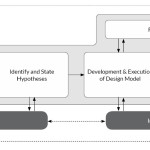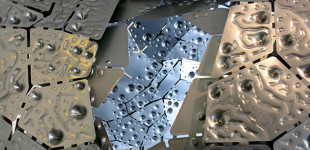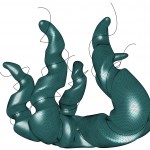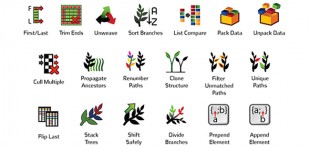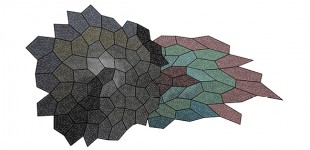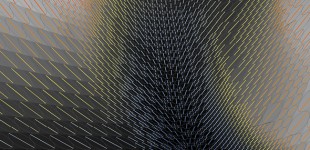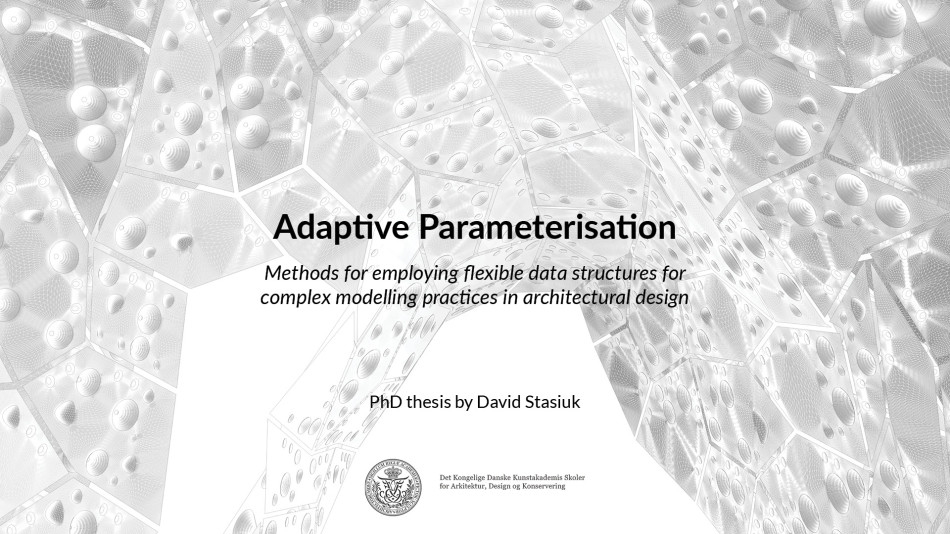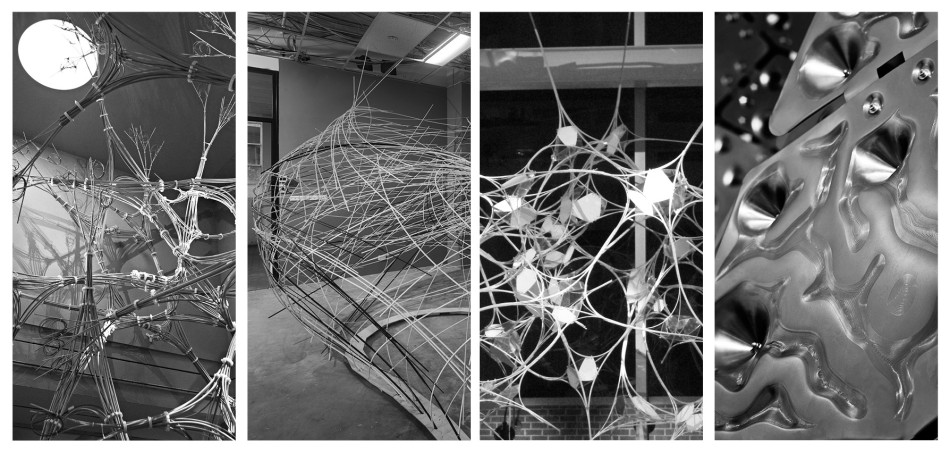bespoke geometry
Adaptive Parameterisation
Although I finished the project work associated with my PhD fellowship at the Centre for Information Technology and Architecture (CITA) in 2015, I have only just this year submitted and successfully defended my written dissertation. While there are several reasons for this delay (some more excusable than others), I am proud that in the end it has been completed and am happy to share it. I am posting my dissertation here, for anyone who may be interested in it:
The research project presented in this dissertation engages in the formulation, development, and deployment of digitally situated, complex design models for architectural design. It is chiefly interested in computational modelling. It has been undertaken with a research through design methodology, using an iterative series of active, design-driven experiments to support the development of ontological and epistemological interests associated with and required for defining an approach toward complex model formulation and implementation practices.
Some of the experimental projects developed as part of my PhD research: The Rise, The Social Weavers, The ACADIA Rise, and Stressed Skins (from left to right)
This research project presents adaptive parameterisation as a method for formulating and developing complex computational design modelling systems, where open-ended design systems may be activated through increasingly integrated feedback loops. The dissertation is predicated first on the assertion that nearly all contemporary architectural design projects of even modest complexity are realised through collections of interdependent partial models, each of which is possessed of different information-producing or representational functions.
Adaptive parameterisation aims to elicit increasingly holistic performances from these networks of partial models by focusing on the data structures for the parameter spaces that operate as the information thresholds between them.
This thesis reflects the written component of a PhD project undertaken at the Royal Danish Academy of Fine Arts, School of Architecture. The research was pursued at the school’s Centre for Information Technology and Architecture (CITA) as a component within the larger Complex Modelling in Architectural Design project, funded by the Danish Council for Independent Research (DFF) through the Sapere Aude Advanced Grant. The objectives for the Complex Modelling project include critical engagement with inter-scalar feedback loops and the investigation of computational systems that enable their dynamic modelling using such techniques as machine learning and material simulation, while retaining a focus on how the intuitive, creative and communicable dimensions of architectural design may be retained in their application. It questions the established data infrastructures that define and constrain contemporary CAD systems and aims to present alternative methodologies that support the evolution and advancement of increased representational potentials for digital modelling systems. This PhD project strongly privileges its collaborative role within the Complex Modelling framework.
This thesis has been submitted to obtain a PhD through publication. It is comprised of three main parts. Part I consists of an introductory chapter, a methodology, and a theoretical framework. These aim to establish the main themes that animate the research project, including its motivation, contribution to knowledge, mode of inquiry, epistemological concerns, and contextualisation in contemporary discourse. Part II consists of a selection of seven peer-reviewed publications to which I contributed during the research project’s duration, which include six conference papers and a book chapter. These papers reflect the ongoing discourse produced chiefly through the design experiments that constitute the main body of my research through the PhD project. Part III is comprised of a brief concluding discussion of the primary contributions for the project and their relationship to practice.
This thesis was supervised by Prof. Thomsen of CITA, with co-supervision provided by Phil Ayres of CITA. The PhD committee members are Associate Professor Emanuele Naboni of the Royal Danish Academy of Fine Arts, Schools of Architecture, Design and Conservation, Azam Kahn, Director of Complex Systems Research at Autodesk Research, and Associate Professor Claus Peder Pedersen of the Aarhus School of Architecture.
